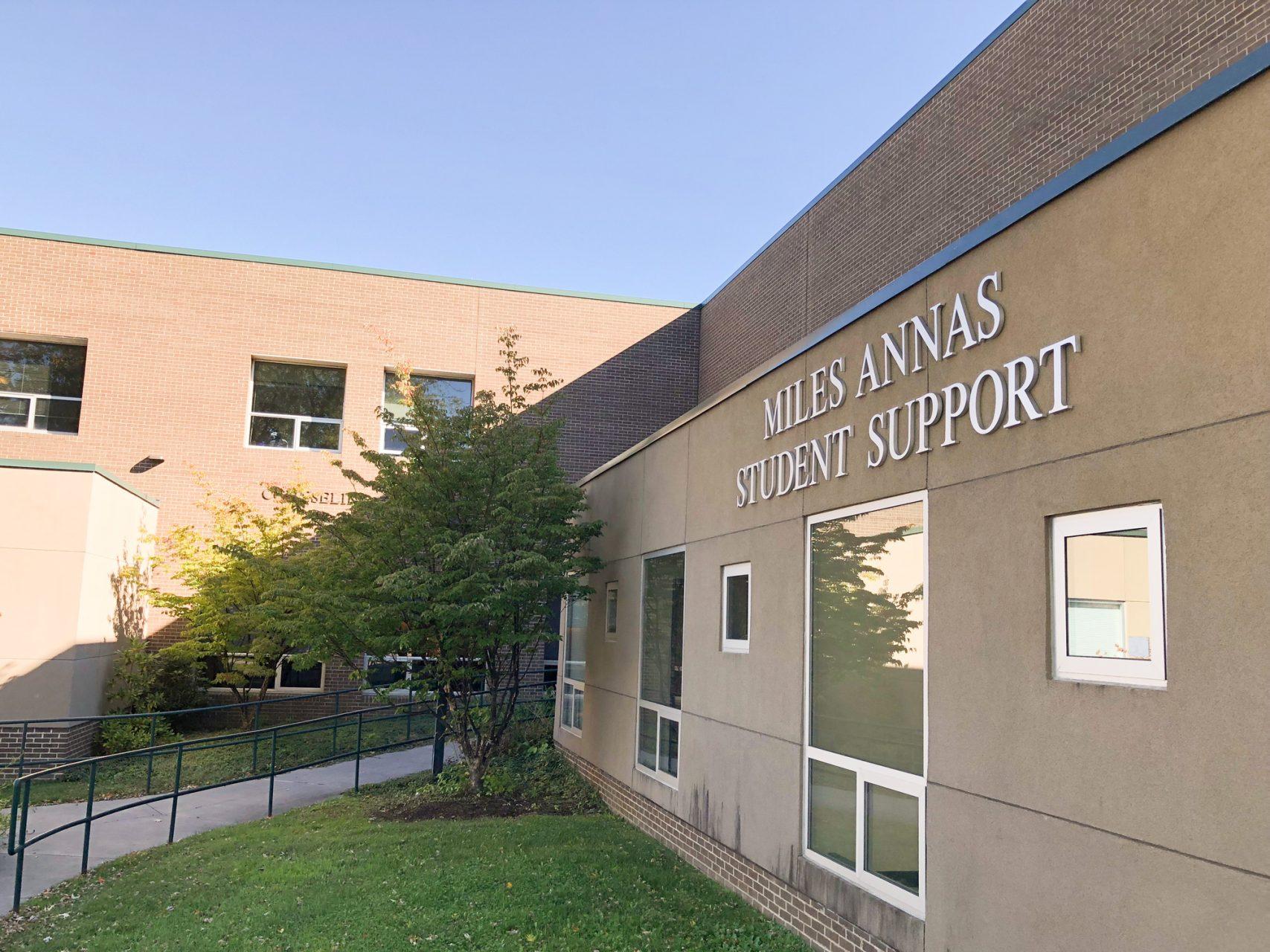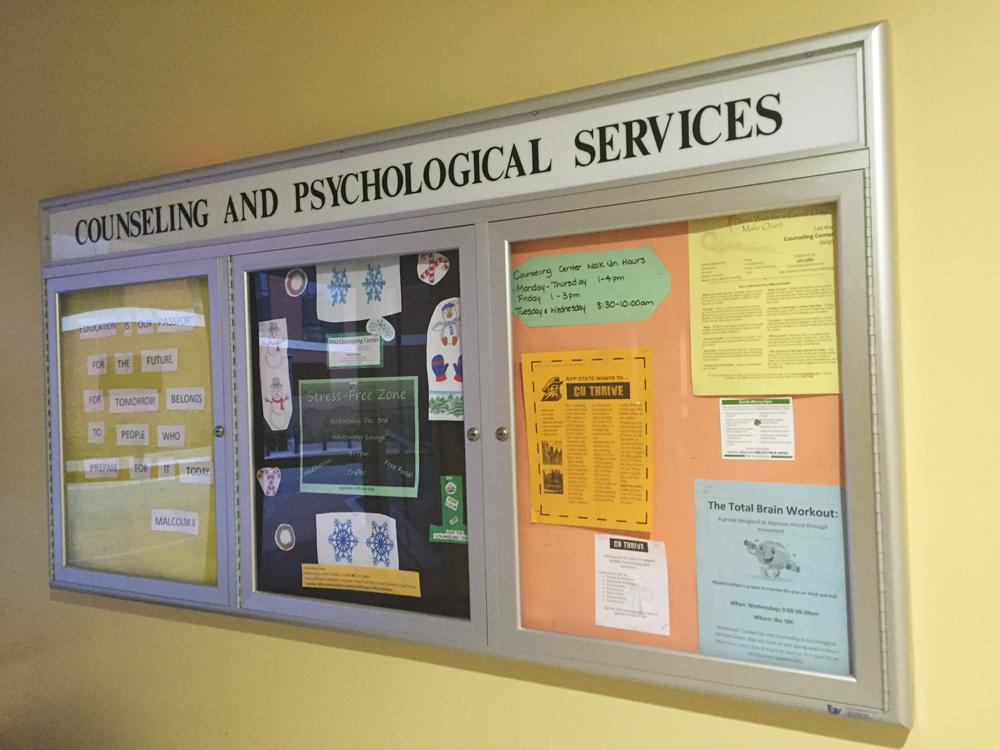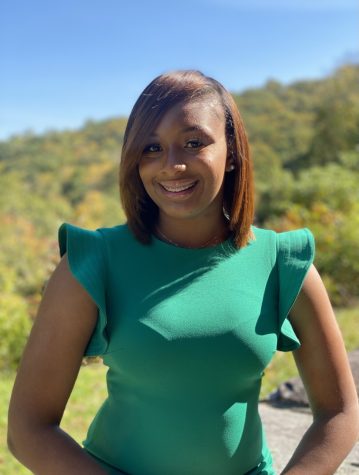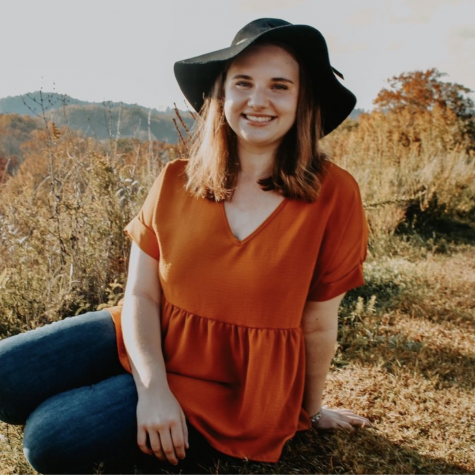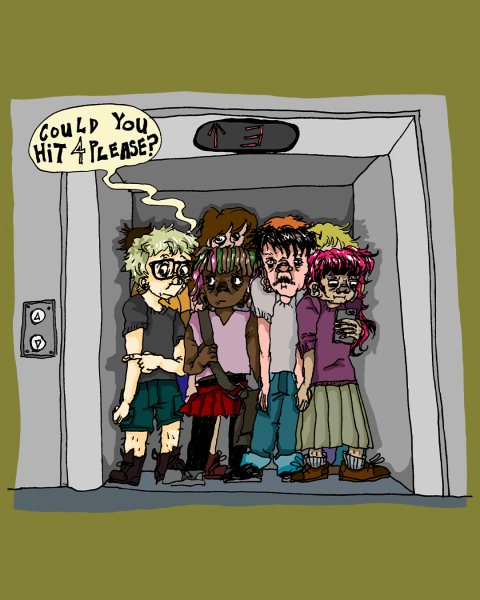Creating conversation: Counseling Center fosters dialogue on inclusive classrooms
The ouside of Miles Annas Student Support which is alternatively known as the Wellness Center. The building has both the counseling center and health services.
April 7, 2021
In an effort to create more inclusive classrooms, the Counseling Center hosted the “Beyond the Books: Creating Race and Culture-Inclusive Classrooms” workshop, where faculty and staff learned ways to talk about race and inclusivity in the classroom and fostering dialogue around these topics.
LaTonya Summers, assistant professor of clinical and mental health counseling at Jacksonville University, spoke to App State faculty and staff about creating racially and culturally-inclusive classrooms.
Summers said educators are adept at creating classrooms where students with different learning styles can succeed, but said, “the real question is, ‘how well are faculty and staff at creating learning spaces where students who are radically and culturally different can thrive?’”
Summers kicked off the conversation by asking faculty and staff to answer the question, “What were you told to focus on in the classroom?” Some of the responses included how they were taught to focus on the relationship with students, and others were taught to focus on multicultural competence and diversity.
Faculty member Gayatri Titus said she learned to focus on diversity, while Deborah Phillips said she learned to focus on the material, not the students.
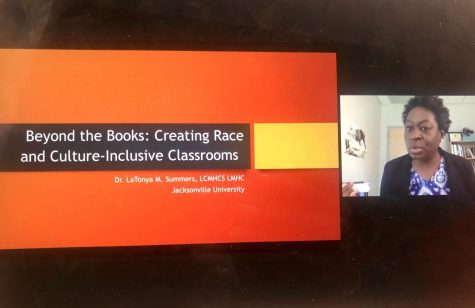
In the chat function during the workshop, faculty and staff admitted reasons why they avoid discussions of race and culture in the classroom. Some of the reasons included the fear of having perspectives dismissed, wanting to treat everyone equally, and ensuring that they are sensitive to all contexts that make experiences unique and different.
“I attended the workshop to provide support to Summers while also showing that these workshops are valued,” said Dominique Hammonds, an assistant professor.
Hammonds said the workshop gave faculty and staff space to be vulnerable and honest while learning how to create these environments in their classrooms.
“Having important conversations like these allows for space for vulnerability and honest dialogue,” Hammonds said.
Summers also introduced the various stressors related to race that faculty and staff should be aware of, like frustration, irritability, defensiveness and sudden mood changes.
“To communicate with all students, it is important to be able to recognize these stressors because they can help identify why a student is not willing to open up to faculty and staff in and out of the classroom,” Summers said.
Summers stressed the importance of talking about race and culture in the classroom and how using the proper language is crucial. She provided faculty and staff with potential questions to ask students in the classroom, such as, “How does my racial heritage influence my interaction with culturally different students?” However, she explained how to appropriately approach these guided questions when communicating with students.
By the end of the workshop, the facilitator hoped that faculty and staff would be encouraged to identify examples and experiences dealing with race and culture in the classroom and discuss ways to infuse multiculturalism into the classroom.
The Counciling Cneter also hosted the workshop “Refill and Restore: Centering Black Joy and Meaning in Life to Improve Our Collective Wellness” on April 6, with guest speaker Kenny Washington.
More information on The Counseling Center and upcoming workshops can be found on its website.

